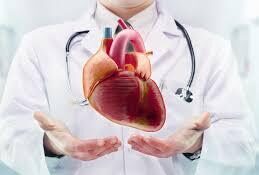Cardiology In Nashik

Cardiology
Cardiology is a branch of medicine that focuses on the diagnosis, treatment, and prevention of heart and cardiovascular diseases. This field deals with the heart’s structure and function, as well as the blood vessels that circulate blood throughout the body.
Key Aspects of Cardiology:
Heart Diseases: Cardiologists address a wide range of heart-related conditions, including:
- Coronary Artery Disease (CAD): Blockage or narrowing of the coronary arteries that can lead to chest pain (angina) or heart attacks.
- Heart Failure: A condition where the heart is unable to pump blood effectively, leading to fluid buildup and symptoms like shortness of breath and fatigue.
- Arrhythmias: Abnormal heart rhythms, such as atrial fibrillation or ventricular tachycardia, which can affect the heart’s ability to pump blood effectively.
- Valvular Heart Disease: Problems with one or more of the heart valves, such as stenosis or regurgitation.
- Hypertension: High blood pressure that can contribute to heart disease and other health problems.
- Congenital Heart Defects: Structural heart abnormalities present from birth.
Diagnosis and Treatment: Cardiologists use a variety of diagnostic tools and tests, including:
- Electrocardiogram (ECG or EKG): Measures the electrical activity of the heart.
- Echocardiogram: An ultrasound of the heart that provides images of heart structure and function.
- Stress Testing: Assesses how the heart performs under physical exertion.
- Cardiac Catheterization: Involves inserting a catheter into the heart’s blood vessels to diagnose and sometimes treat heart conditions.
Treatment options may include medications, lifestyle changes, interventional procedures (such as angioplasty or stent placement), and surgical interventions (such as valve repair or replacement).
Prevention and Lifestyle: Cardiologists also emphasize the prevention of heart disease through lifestyle modifications like diet, exercise, and managing risk factors such as high cholesterol and smoking.
Overall, cardiology plays a crucial role in managing and treating heart conditions, aiming to improve heart health, prevent complications, and enhance patients’ quality of life.

